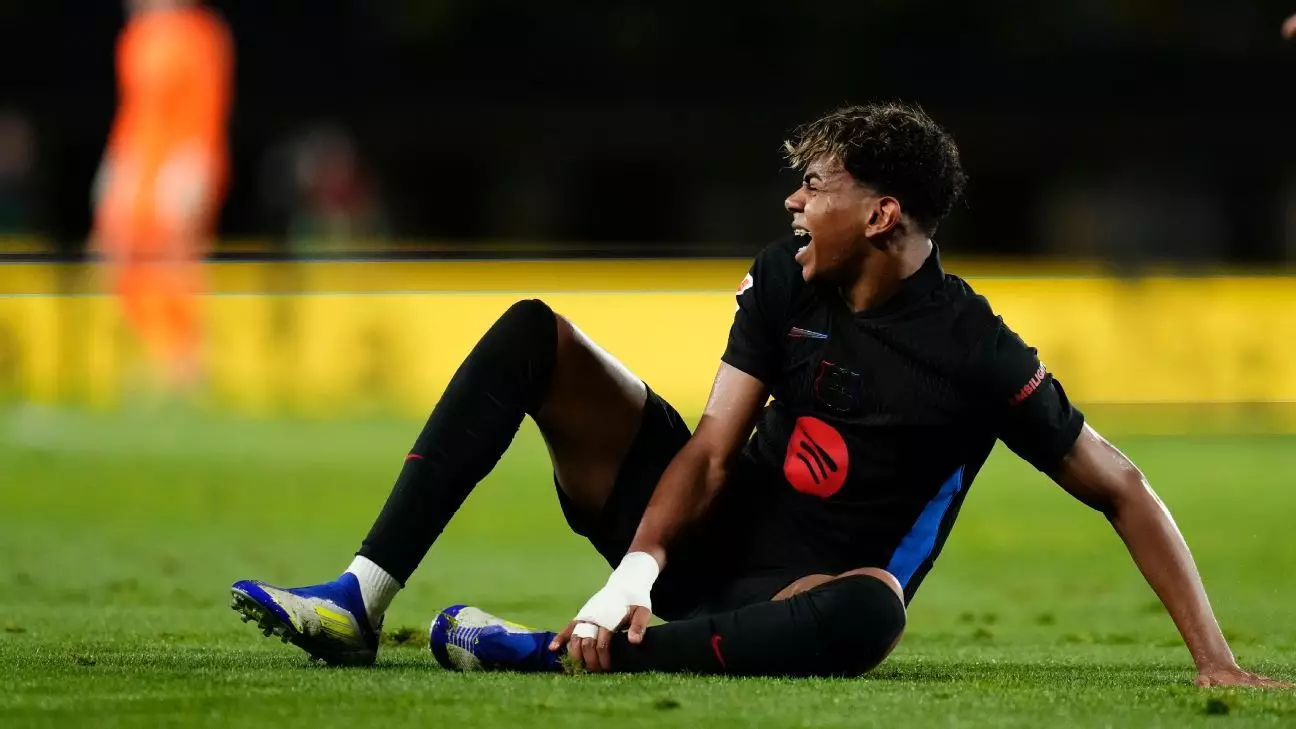As the highly anticipated Copa del Rey semifinal draws near, Barcelona is gearing up to face Atlético Madrid in what promises to be a thrilling encounter at the Olympic Stadium. Barcelona coach Hansi Flick appears to be optimistic about his team’s chances, particularly regarding the fitness of young winger Lamine Yamal. The stakes have never been higher; the outcome of this match could influence not only their campaign in this prestigious cup but also their moral and competitive standing in La Liga. Barcelona, currently in a tight race for the top position in the league, is looking to sustain their form and build momentum, and a solid performance against a formidable opponent like Atlético would greatly assist in this endeavor.
Yamal, at just 17 years of age, has shown exceptional promise this season, and his presence on the field is vital for Barcelona’s offense. However, his recent performance was marred by injury, as he was forced to exit the field in the last minutes of their 2-0 victory over Las Palmas. The bloodied image he shared on social media reflects the physical demands placed on young players, especially those who thrive in one-on-one situations against seasoned defenders. During a press conference, Flick expressed his optimism regarding Yamal’s potential recovery. He mentioned that the medical staff remain hopeful about his inclusion in the lineup for the clash against Atlético Madrid. This highlights the critical balance between player management and field performance in high-stakes matches.
The incident that caused Yamal’s injury spurred discussions around player protection, especially considering how frequently he was targeted during the match against Las Palmas. Out of the 12 fouls assessed during that game, many were perceived by Flick and his team as unpunished challenges that need greater attention from referees. In discussions about player safety, Flick emphasized that all players—regardless of their reputation or skill level—should be equally protected. Indeed, the responsibility falls not just on individuals but also on the game’s governing bodies to enforce rules consistently. The trend of allowing excessive physicality without consequence can lead to an environment where injury becomes an inevitability rather than an exception.
As Flick prepares his side for the match, he acknowledges Atlético’s efficient tactics and strong defensive line. The previous encounter between the two teams, which ended in a 2-1 loss for Barcelona, serves as a learning experience. Flick’s focus on the positives derived from that loss indicates a tactical maturity. Despite defeat, he observed that Barcelona could perform at an elite level, indicating a readiness to adapt. Atlético Madrid, managed by Diego Simeone, has demonstrated their caliber not just through defensive solidity but also offensive prowess, making the upcoming match a complex tactical dilemma for both sides.
Beyond the immediate implications of this semifinal, the match is integral to both teams’ broader narratives. For Barcelona, earning a spot in the final could serve as a springboard into a successful trophy-laden season, validating Flick’s tactical philosophies and for the squad’s young talents like Yamal. For Atlético, continuing their disciplined play and successfully navigating through to the final could affirm their status as the titans of Spanish football. Furthermore, with Real Madrid facing off against Real Sociedad in the other semifinal, the outcome of this match could set the tone for the final, establishing a highly competitive atmosphere in Spanish football.
As the clock ticks down to gametime, the enthusiasm surrounding this semifinal is palpable. For both teams, this is not just about the Copa del Rey but a statement of their current standing within footballing hierarchies. With the players’ energy, tactical prowess, and a bit of luck, the match could provide yet another chapter in the rich tapestry of Spanish football’s storied rivalries.

